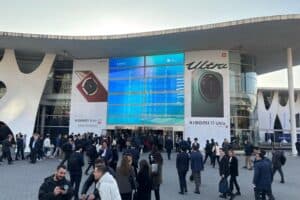Israelis and Palestinians need to acknowledge each other’s identity and have compassion for each other’s history

In a country considered the “Holy Land”, where religion is central and the core of their identity, it is interestingly unsettling to see how the war, conflict, hatred and violence have become normalised in Israel.
Although I haven’t travelled much outside South Africa, Israel was not the first on my bucket list of destinations, considering what we as South Africans know about the place.
I had my reservations going there: all I could think about was the violence that could break out at any time in a country constantly at war – but I was gobsmacked by all the lights, clean streets and operational public transport as soon as I arrived in Israel.
First stop Tel Aviv. I know it’s hard to believe a homebody when they say “it’s the most amazing place I’ve been to”, but it was, and the first thing that came to mind was the zero-crime tolerance, seeing women walking around, dressed however and not a whiff of fear.
ALSO READ: Al Jazeera takes journalist Shireen Abu Akleh killing to ICC
I envied that. I must say I had high hopes for the country and it delivered on every aspect: from my experience Israel is a free country, especially for women, because for the first time in a country constantly at war I felt safe.
It was nothing like what I was accustomed to, but in the same breath, everyone else looked like they were constantly on edge, even the 17/18-year-old soldiers carrying their riffles around their necks – and at that moment it dawned on me: the magnitude of the Israel-Palestine conflict at hand.
Looking at one young lady (soldier) in particular, who was surrounded by worshippers praying and swaying at the Western Wall in Jerusalem, trying to stick a prayer into the wall that overflowed with paper prayers inserted into its cracks – the fear in her eyes said a thousand words. It told a story of a generation who inherited a conflict older than her.
Israelis and Palestinians are unable to acknowledge core facets of each other’s identity. The mutual denial of historic claims by both parties, including the destruction of historical evidence, has only ever built mistrust.
In a country with such beautiful sites and places to visit, amazing food and people, it’s hard to believe it is plagued by such news surrounding its existence, policies, decisions and behaviour.
Yes, we also do not have the answers to ending the conflict, but it cannot just be the people outside of the conflict who feel the most pain for the millions of casualties caught in the crossfire of this war with its only outcome being pain and death.
I cannot imagine myself, let alone my son, living in a place where he’s forced to learn the sound of an alarm calling for people to quickly find a bomb shelter, or a place marred by fear of a suicide bomber out of nowhere.
Speaking to both Israelis and Palestinians, seeing the similarities and passion for recognition and having a homeland, it still confuses me why the conflict has carried on for centuries with no sign of a peaceful coexistence.
The humiliation Palestinians experience at the hands of the Israeli police and army, the fear Israelis experience and feel, the violent and hateful rhetoric used by both Israelis and Palestinians, and the cascading effects of violence and death are all reasons why Palestinians and Israelis will always be stuck on a hill that brings out the worst in each other.
Israelis and Palestinians need to acknowledge each other’s identity and have compassion for each other’s history and desires, as well as the lived and inflicted pain, reluctance to take the next logical step and declare a lasting peace with Israel.
ALSO READ: ‘Stop paying lip service to freedom of Palestine and isolate Israel’ – EFF to UN
Support Local Journalism
Add The Citizen as a Preferred Source on Google and follow us on Google News to see more of our trusted reporting in Google News and Top Stories.






